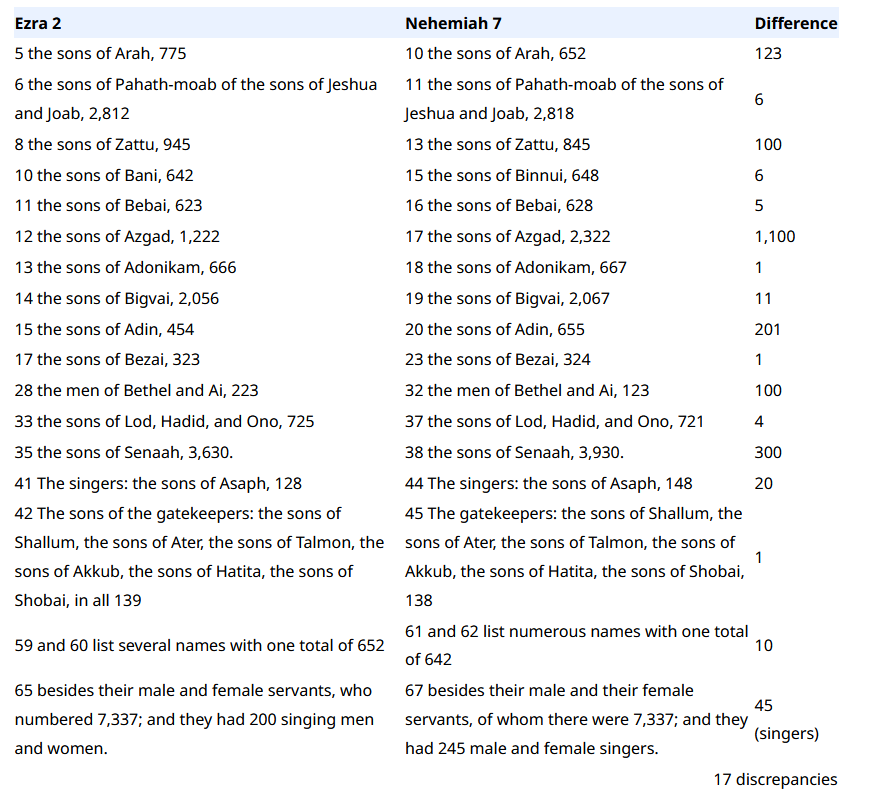Problem: Throughout the Bible, we see conflicting messages on the visibility of God. On the one hand, God appeared to Abraham (Gen. 17:1; 18:1) and Moses (Ex. 6:2-3). In fact, Moses recorded that the elders “saw the God of Israel” (Ex. 24:10). However, in this passage, Paul says that God is “invisible” (1 Tim. 1:17), and at the end of this letter, Paul writes that God “dwells in unapproachable light, whom no man has seen or can see” (1 Tim. 6:16). God told Moses that “no man can see me and live” (Ex. 33:20), and John wrote, “No one has seen God at any time” (Jn. 1:18; c.f. 5:37; 6:46). Critics argue that the Bible seems to be offering a clear contradiction on the visibility of God.
Continue reading →
Uncategorized
Psalm 18:22-24 – How can David claim that he is “blameless”?
Problem: David says, “For all His ordinances were before me, and I did not put away His statutes from me. 23 I was also blameless with Him, and I kept myself from my iniquity. 24 Therefore the Lord has recompensed me according to my righteousness, according to the cleanness of my hands in His eyes” (Ps. 18:22-24). How can he write this, when he committed murder and adultery?
Continue reading →
Ezra 2 – Why are the statistics in Ezra 2 and Nehemiah 7 different?
Why are the statistics in Ezra 2 and Nehemiah 7 different? Ezra 2 and Nehemiah 7 are listings of numbered people from different families. The chapters represent the statistics of the same families, but they are not identical. I have produced a grid below that lists the families that do not match. If you would like to see the grid comparing all families in Ezra 2 and Nehemiah 7, go here.
Of 39 entries (verses), 17 do not match. They are listed below.
It is obvious from the above table, that there were many statistical differences between Ezra and Nehemiah. Though most of them are identical, some do not match. Why? The answer is simple.
Ezra was written no later than 450 B.C.1 Nehemiah should be dated during the reign of Artexerxes [1] (464-423 B.C.).[2] According to the book, “Talk Thru the Bible,” Ezra was written about 538-516 B.C.[3] where Nehemiah was written around 444-425 B.C.[4] Therefore, the dates of writing are different and the statistical differences can easily be accounted for by considering that during the difference of years, people died, families grew, etc.
I must note that there is a small percentage of copyist errors in numbers throughout the Hebrew Scriptures. It is certainly possible that some of the numbers differ due to copyist mistakes. Nevertheless, the difference in dates of writing can certainly account for the difference in numbers.
References
[1] Harrison, R. K., Introduction to the Old Testament, Grand Rapids, MI: Eerdmans Publishing Company, 1969, p. 1143.
[2] Harrison, p. 1146.
[3] Wilkinson, Bruce, and Kenneth Boa, Talk Thru the Bible, New York: Thomas Nelson Publishers, 1983, p. 116.
[4]4 Ibid., p. 123.
2 Chronicles 2:2 – How many supervisors were there? 3,300 or 3,600?
Problem: How many supervisors were there? 3,300 or 3,600? 1 Kings 5:16 and 2 Chronicles 2:2
Continue reading →
1 Chronicles 21:12 – God sent his prophet to threaten David with how many years of famine?
Problem: God sent his prophet to threaten David with how many years of famine? 2 Samuel 24:13 and 1 Chronicles 21:12 examined.
Continue reading →
1 Samuel 16:19-23 – Did or did not Saul know who David was?
Problem: Did or did not Saul know who David was? 1 Samuel 16:19-23 and 1 Samuel 17:55-58
Continue reading →
1 Sam. 6:19 – How many were killed? 70 or 50,070?
Problem: Most manuscripts—especially the Masoretic Text—records that 50,070 men were killed. Only a few manuscripts record that 70 were killed. Which is true?
Continue reading →
Joshua 6:1-27 – Doesn’t modern archaeology disagree with this?
Problem: Archaeologist John Garstang dated the destruction of Jericho to 1400 BC (in the 1930s), which would place the destruction of Jericho perfectly in line with the biblical account. However, archaeologist Kathleen Kenyon dated it to 1550 BC (in 1952-1958). Kenyon’s reanalysis of the findings at Jericho has led the majority of scholars to disagree with Garstang’s original conclusions.
Continue reading →
Deuteronomy 18:15 – Why does Peter apply this passage to Jesus?
Problem: Peter said, “THE LORD GOD WILL RAISE UP FOR YOU A PROPHET LIKE ME FROM YOUR BRETHREN; TO HIM YOU SHALL GIVE HEED to everything He says to you. 23 And it will be that every soul that does not heed that prophet shall be utterly destroyed from among the people’” (Acts 3:22-23). Does this passage prefigure Jesus?
Continue reading →
Deuteronomy 2:12 – How could Moses write this if he had never been to the Promised Land?
Problem: Deuteronomy records that Moses died before he could enter the land of Israel (Deut. 34). But Moses knew how the Jews had taken possession of the land, which he never saw (v.12). Critics argue that this demonstrates that Moses was not the author of the Pentateuch. Instead, a later author must have composed this work.
Continue reading →

